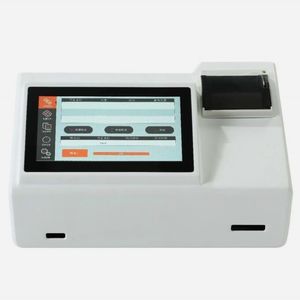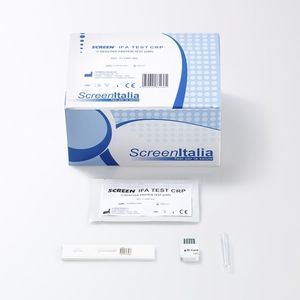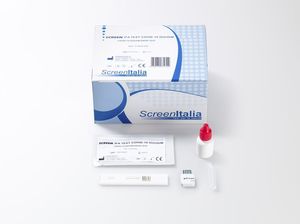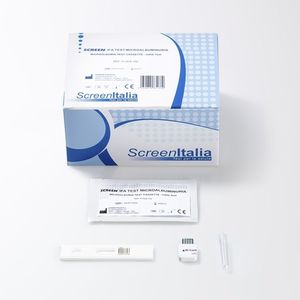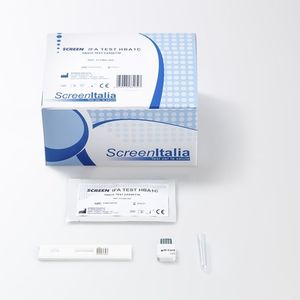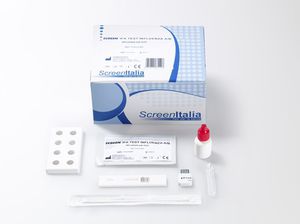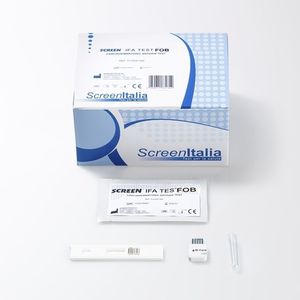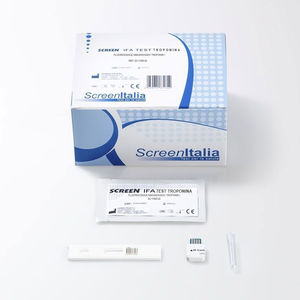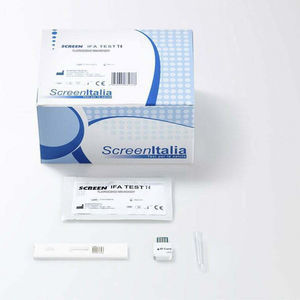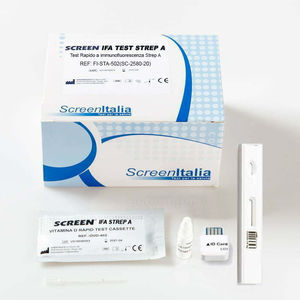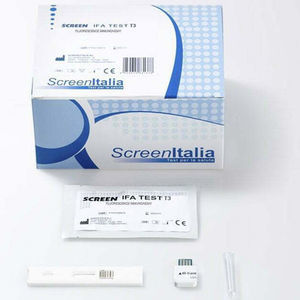
- Company
- Products
- Catalogs
- News & Trends
- Exhibitions
Rapid inflammatory disease test SC-1392-20PCTbloodimmunofluorescence
Add to favorites
Compare this product
Characteristics
- Applications
- for inflammatory diseases
- Tested parameter
- PCT
- Sample type
- blood
- Analysis mode
- immunofluorescence
- Other characteristics
- with digital reader
Description
SCREEN IFA TEST PROCALCITONINA
Fluorescence Immunoassay Procalcitonin
REF: SC-1392-20
Test for the diagnosis of inflammatory state by measuring Procalcitonin (PCT) on whole blood, serum or plasma with the use of the Immunofluorescence Analyzer. The PCT Cassette Test (Whole Blood/Serum/Plasma) is an immunofluorescence-based test for the quantitative detection of human procalcitonin on whole blood, serum or plasma as an aid in the diagnosis of inflammatory state. Procalcitonin (PCT) is a small protein comprising 116 amino acid residues with a molecular weight of approximately 13 kDa, first described by Moullec et al. in 1984. PCT is normally produced in the C cells of the thyroid glands. In 1993 a high level of PCT was observed in patients with systemic bacterial infection and today PCT is considered the main marker of disorders accompanied by systemic inflammation and sepsis. The diagnostic value of PCT is important given the close correlation between its concentration and the severity of the inflammation. It has been shown that “inflammatory” PCT is not produced by C cells. The source of PCT during inflammation appears to be cells of neuroendocrine origin. The PCT Cassette Test (Whole Blood/Serum/Plasma) is based on immunofluorescence. The sample moves across the strip from the sample pad to the absorbent pad. If the sample contains Procalcitonin, it attaches to antibody-conjugated fluorescent beads. Then the compound is captured by the capture antibodies placed on the nitrocellulose membrane (Test line).
Catalogs
SCREEN CATALOGUES EN
182 Pages
Related Searches
- Assay kit
- Blood assay kit
- Immunoassay assay kit
- Blood rapid diagnostic test
- Rapid lateral flow test
- Immunoassay rapid diagnostic test
- Cassette rapid diagnostic test
- Virus rapid diagnostic test
- Respiratory infection test kit
- Serum rapid diagnostic test
- Plasma rapid diagnostic test
- Infectious disease rapid diagnostic test
- Whole blood rapid diagnostic test
- Cassette assay kit
- Lateral flow test kit
- COVID-19 assay kit
- Rapid respiratory infection test
- Urine rapid diagnostic test
- Antigen assay kit
- Test strip
*Prices are pre-tax. They exclude delivery charges and customs duties and do not include additional charges for installation or activation options. Prices are indicative only and may vary by country, with changes to the cost of raw materials and exchange rates.



